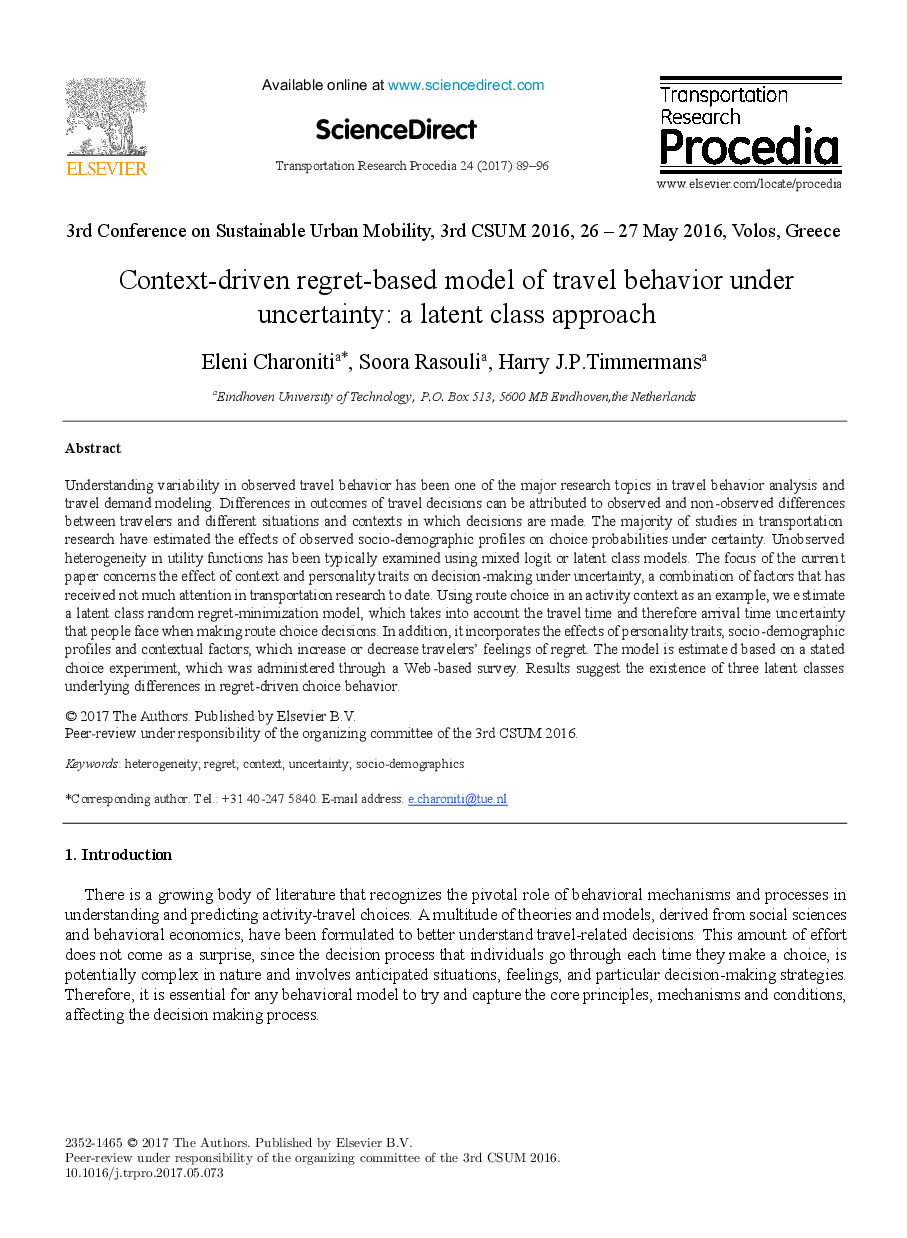ترجمه فارسی عنوان مقاله
مدل مبتنی بر پنهان مبتنی بر محتوا تحت عدم قطعیت: یک رویکرد کلاس پنهان
عنوان انگلیسی
Context-driven regret-based model of travel behavior under uncertainty: a latent class approach
| کد مقاله | سال انتشار | تعداد صفحات مقاله انگلیسی |
|---|---|---|
| 132268 | 2017 | 8 صفحه PDF |
منبع

Publisher : Elsevier - Science Direct (الزویر - ساینس دایرکت)
Journal : Transportation Research Procedia, Volume 24, 2017, Pages 89-96
ترجمه کلمات کلیدی
ناهمگونی، پشیمان بودن، متن نوشته، عدم قطعیت، اجتماعی و جمعیتی،
کلمات کلیدی انگلیسی
heterogeneity; regret; context; uncertainty; socio-demographics;

